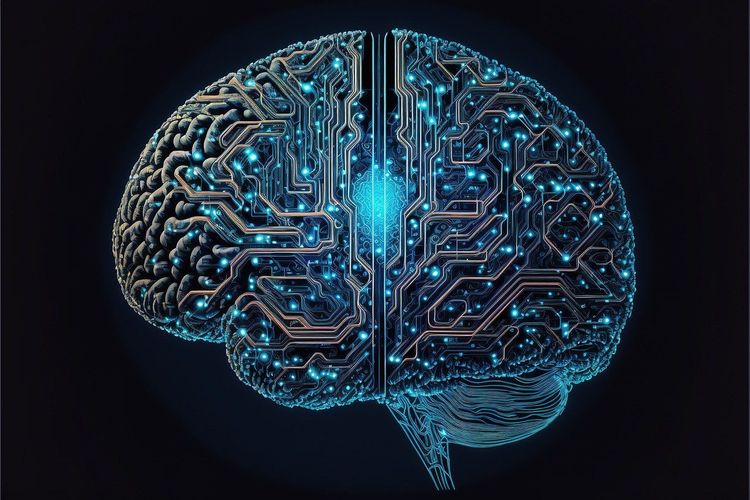Let’s clarify my position: I am generally pro-generative AI. I embrace its potential and utilize it daily—whether parsing information via ChatGPT or generating images with Midjourney—more so than many of my journalism colleagues.
However, I harbor concerns about OpenAI's recent trend of partnering with major media companies in the U.S. and internationally. Just today, OpenAI announced collaborations with The Atlantic and Vox Media, both of which are outlets where I’ve previously worked.
The Atlantic, a 167-year-old publication, has successfully adapted to the digital age with well-researched opinion columns and articles. Vox Media, on the other hand, is a dynamic media startup that originated from the sports blog SB Nation and has expanded to include outlets like The Verge and Vox, acquiring prestigious titles such as New York Magazine along the way.
In total, OpenAI has formed alliances with seven major media outlets in under a year. Notable partners include:
- The Atlantic (deal announced May 2024)
- Vox Media (deal announced May 2024)
- Meredith Dotdash (deal announced May 2024)
- The Financial Times (deal announced April 2024)
- Axel Springer (publisher of Politico and Business Insider in the U.S.) (December 2023)
- The Associated Press (July 2023)
- The American Journalism Project (July 2023)
While the specifics of these deals remain undisclosed, reports indicate that OpenAI is paying tens of millions—even up to $250 million over five years in the case of News Corp—for access to the extensive content produced by these publishers.
Why are these partnerships occurring? The primary motivation for OpenAI is likely to secure licensed training data for building advanced AI models that could rival the writing skills of seasoned journalists. This content could enhance the performance of ChatGPT and ultimately lead to commercializing tools for media outlets.
Specifically for digital outlets like Vox, which creates content for platforms like YouTube and Netflix, OpenAI may also train its AI video model, Sora, to generate documentary-style content based on text prompts.
Yet, the question arises: why would OpenAI opt to pay for content when it historically scraped data from the internet for free? The backlash from artists, creatives, and even established media like The New York Times—currently suing OpenAI over copyright infringement—has made OpenAI's position on scraping publicly available data for commercial purposes increasingly precarious.
In response, OpenAI introduced a code for website owners to prevent scraping, similar to editing a robots.txt file. Alongside this, a forthcoming Media Manager product will allow creators and publishers to flag their online work, opting out of scraping. However, this feature won’t be available until 2025, placing the responsibility on content creators to protect their work from AI training.
For OpenAI, paying publishers may serve as a means to avoid legal issues while accessing necessary data. However, it does not compensate content owners whose work has already been exploited for training models.
As for media publishers, while financial support is crucial for their operations, they also stand to gain placement. Publishers acknowledge that ChatGPT will surface their articles within its outputs. For example, if a user requests a summary of the latest tech news, responses may include links to articles from Business Insider, The Verge, or The Wall Street Journal.
However, we lack clarity on how often ChatGPT will feature specific publications or how much referral traffic it will generate. It remains uncertain whether ChatGPT will quote from articles or merely summarize content, potentially detracting from the value of original work and diminishing the need for users to visit the source websites—impacting ad revenue and subscriptions.
This dynamic has raised concerns among journalists about whether media outlets are receiving equitable benefits from these partnerships. Why would a reader seek out additional information or subscribe if they can obtain it directly from ChatGPT? Meanwhile, OpenAI benefits financially from user subscriptions, diverting potential revenue from the original publishers.
The situation echoes the early days of Google News and the rise of social media, which dramatically reshaped how traffic flowed to publishers. Despite ongoing changes, it appears that generative AI is the next major shift in information consumption.
As OpenAI collaborates with more publishers, the distinctiveness of individual outlets may diminish, leading to a commoditized media landscape where content is merely fodder for AI models. The reason many publishers are aligning with OpenAI seems to stem from a realization that reliance on traditional platforms for audience engagement may no longer be viable.
In contrast, smaller, independent publications like 404 Media and Substack-based outlets are pursuing alternative strategies focused on building direct relationships with their readers. However, these smaller ventures often lack the resources necessary for large-scale investigative journalism.
What does the shift away from traditional media mean for society, democracy, and the information landscape? I do not believe it signals the end of journalism, as social media has provided platforms for “citizen journalists” to uncover important information. However, with a decline in engagement with traditional outlets, overall news consumption has fallen, leading to a rise in misinformation and a fragmented understanding of reality.
The media industry is challenging, with low profit margins and fierce competition. In the U.S., we do not have a robust publicly funded media tradition, relying instead on wealthy benefactors. OpenAI appears to be capitalizing on this lack of funding, gaining valuable access to factual information and increasing its own influence.
Could ChatGPT become the new "homepage of the internet"? I remain skeptical of that notion in its current form, which may not provide the optimal multimedia experience. It seems that users seek to interact with information they already possess rather than relying on ChatGPT to discover quality resources. However, the future is uncertain, and we will soon see if audiences engage with long-form journalism through ChatGPT or prefer to click through to original articles.







